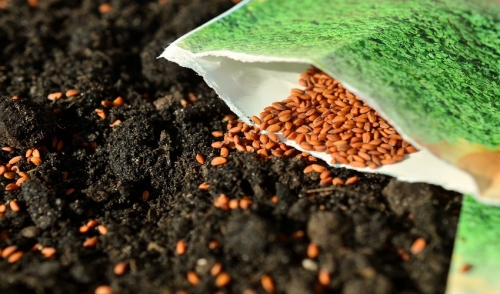Starting Seedings Indoors to Kick Start Your Garden
Starting seedlings indoors has many benefits for gardeners and can increase the productivity and variety of your garden. It's not difficult, but does take some...

Planning your 2025 vegetable garden is an exciting opportunity to set yourself up for a successful growing season. Thoughtful preparation is the key to a successful garden, and by laying the groundwork now, you’ll be ready to grow an abundant harvest when the season begins. Whether you’re a seasoned gardener or starting fresh, these tips will help you map out your perfect vegetable garden for the upcoming year.
Before diving into new plans, take some time to review your garden from the past year (if you had one). What worked well? Which vegetables thrived, and which struggled? Was there enough space for everything? Reflecting on successes and challenges can guide your choices for 2025.
Questions to ask yourself:
Make notes so you can adjust your plan accordingly.
Every gardener has different priorities. Think about what you want to achieve with your 2025 garden.
Knowing your goals will help you decide what to plant and how to care for your garden.
The best vegetable gardens are tailored to your preferences and local growing conditions. Select vegetables that:
If you’ve grown a vegetable garden before, crop rotation is essential for maintaining soil health and reducing pest problems. Avoid planting the same types of vegetables (e.g., tomatoes, peppers, eggplants) in the same spot as the previous year. Rotate crops based on their plant families:
This practice helps prevent soil depletion and interrupts pest and disease cycles.
Mapping out your garden layout is one of the most important planning steps. A clear plan will help you optimize space and ensure that every plant gets what it needs to thrive.
Healthy soil is the foundation of a productive garden. If possible, test your soil this winter to determine its pH and nutrient levels. Based on the results, amend the soil with compost, manure, or organic fertilizers to ensure it’s nutrient-rich and ready for planting.
Fall or early spring is also a great time to add mulch, cover crops, or organic matter to improve the soil structure before planting begins.
Timing is everything in gardening. Research the best planting dates for each vegetable based on your local frost dates. A planting schedule will help you stagger crops for continuous harvests and avoid missing important planting windows.
Don’t forget to include succession planting for crops like lettuce and radishes, which can be replanted every few weeks for a steady supply.
Ordering seeds early ensures you’ll get the varieties you want before they sell out. Take inventory of your gardening tools, pots, trellises, and other supplies to see what needs replacing or upgrading.
Consider purchasing or swapping seeds with other gardeners to try new varieties. Look into heirloom or regionally adapted seeds for plants that are well-suited to your area.
A proactive approach to pest and weed control can save you headaches during the growing season.
Watering is crucial for a thriving vegetable garden. Ensure you have a reliable watering system in place, especially if you anticipate a dry season. Options include:
If sustainability is a goal for your 2025 garden, plan now for eco-friendly practices. Consider composting kitchen scraps, reusing containers, or planting native vegetables that require less water and care.
A new gardening season is the perfect time to try something different! Dedicate a small section of your garden to experimenting with a new crop, unique varieties, or companion planting techniques. You may discover a new favorite!
From selecting your vegetables to preparing your soil and mapping your layout, a little preparation now will lead to bountiful harvests later. Start planning today, and you’ll be ready to enjoy a thriving garden filled with fresh, delicious vegetables all year long.
Happy gardening!

Our most popular bird seed blend, All Season is the ultimate value in bird food. Designed for year-round bird feeding, and for attracting the widest variety of wild birds.
On Sale: $10.88
Reg. Price: $19.99
Not valid with any other discounts or sales.

Starting seedlings indoors has many benefits for gardeners and can increase the productivity and variety of your garden. It's not difficult, but does take some...
Comments